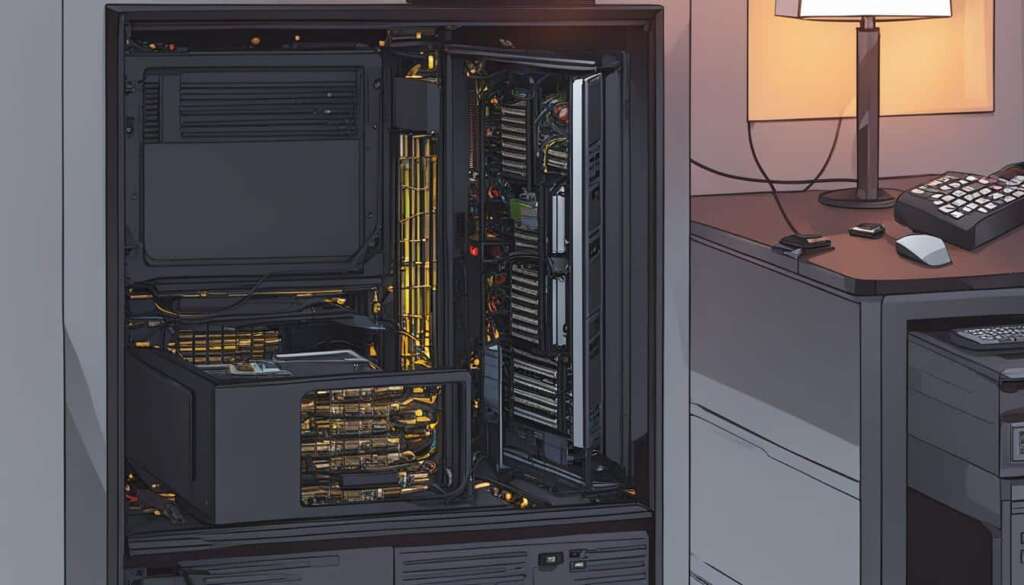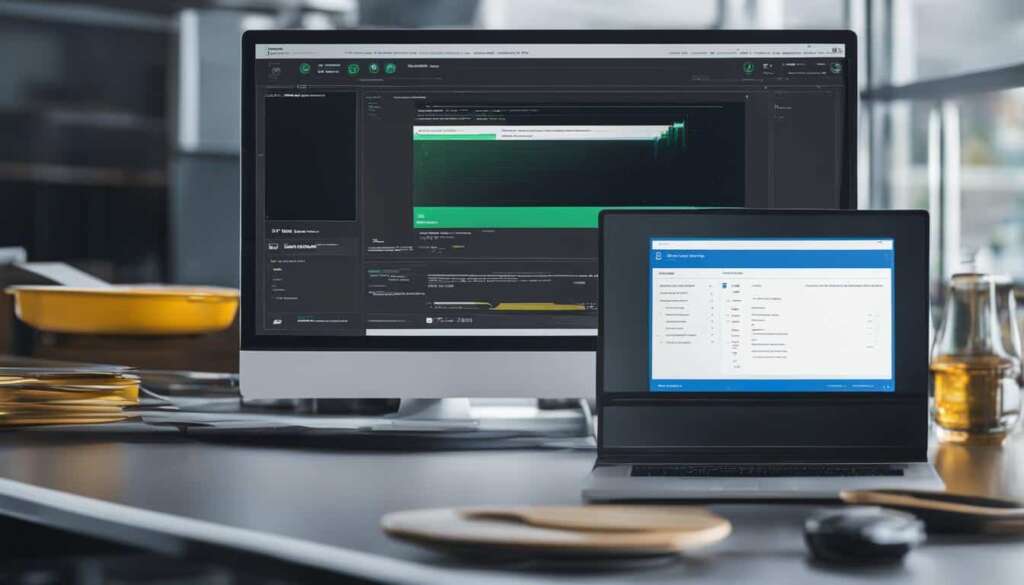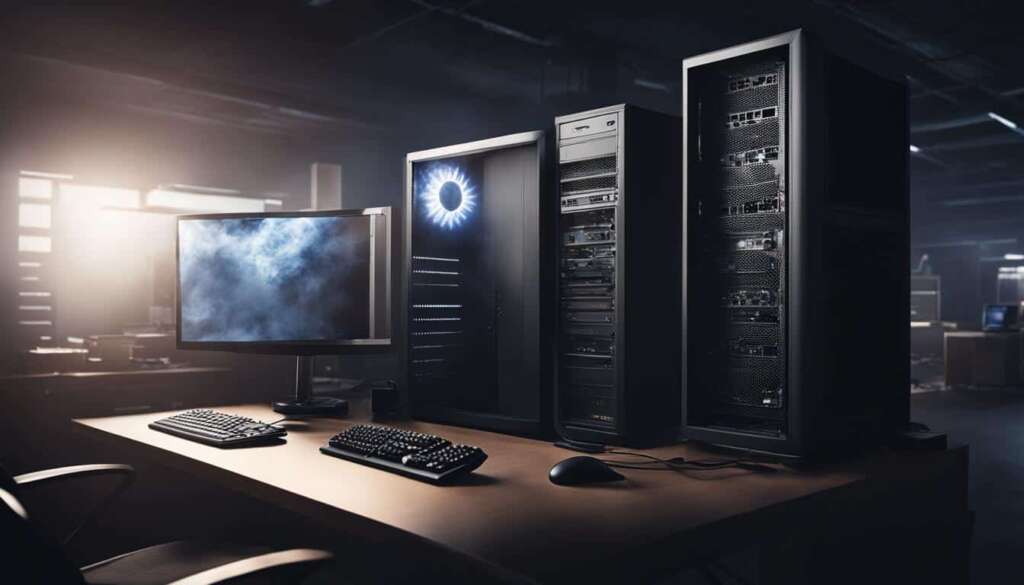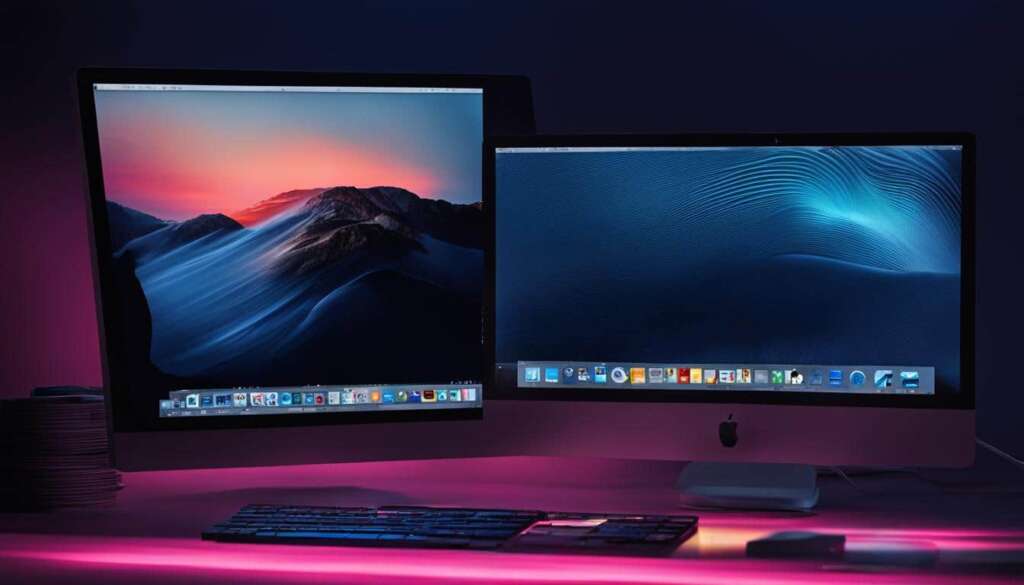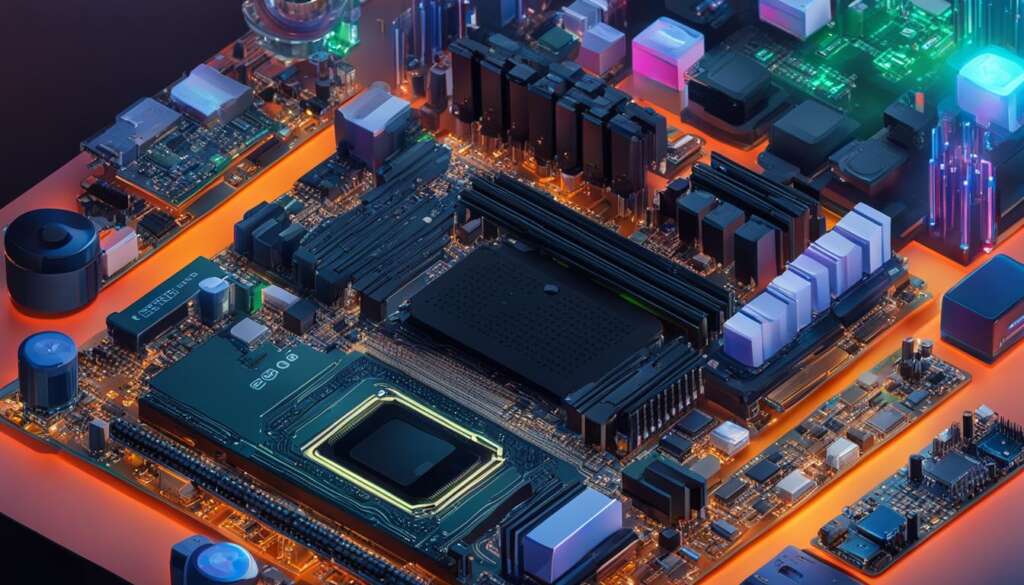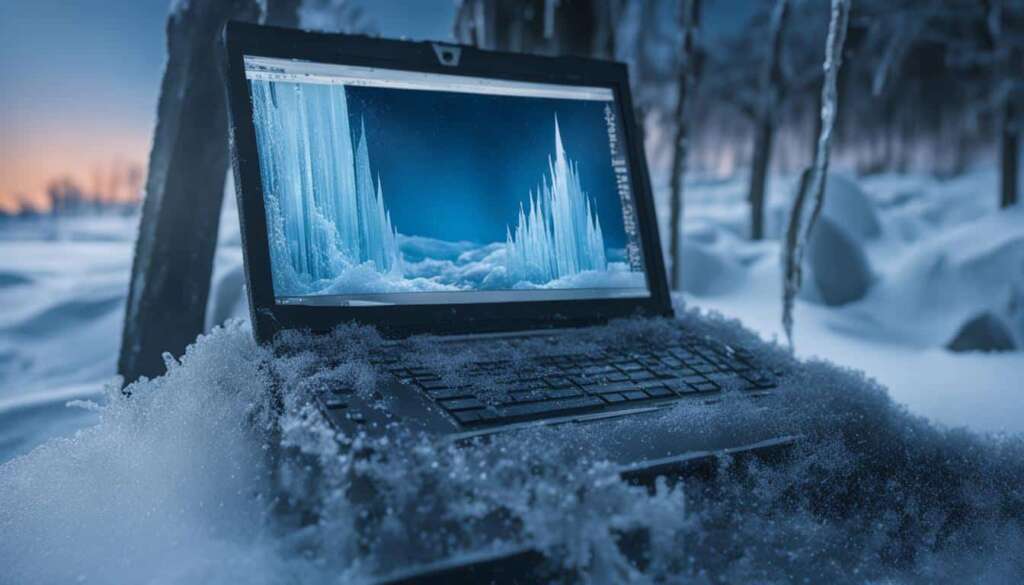Table of Contents
Computers can sometimes shut down unexpectedly, causing frustration and disruption to our work. To address the issue of random PC shutdowns, it is important to understand the potential reasons behind this problem. There are several factors that can contribute to a PC randomly turning off, including overheating, hardware problems, driver issues, malware infection, battery problems, UPS/surge protector failure, insufficient charger voltage, dodgy sleep mode, fast startup disadvantages, out-of-date BIOS, software issues, and problematic operating system. By troubleshooting these potential issues, you can diagnose and resolve the problem causing your PC to shut down randomly.
In this article series, we will explore each of these potential issues in detail and provide you with step-by-step solutions to diagnose and fix them. Whether you are a casual computer user or a tech enthusiast, understanding why your PC randomly turns off is key to maintaining a reliable and efficient computing experience.
Overheating
Overheating is a common issue that can cause random PC shutdowns, disrupting your work and potentially causing damage to your system. Several factors can contribute to PC overheating, including careless PC usage, fan issues, dirt and dust buildup, and overclocking.
Careless PC Usage
Careless PC usage can lead to overheating. Placing your computer in hot places or exposing it to direct sunlight can increase the temperature inside the system, causing it to overheat. It’s important to keep your PC in a well-ventilated area and away from heat sources to prevent overheating.
Fan Issues
Fan issues such as malfunctioning or dirty fans can also contribute to overheating. If the fans are not functioning properly or if they are clogged with dirt, dust, hair, or debris, they won’t be able to effectively cool down your PC. Regularly cleaning your fans and ensuring they are in good working condition can help prevent overheating.
Dirt and Dust Buildup
The buildup of dirt, dust, and debris inside your PC can restrict airflow, leading to overheating. Over time, this buildup can accumulate on the fans, heat sinks, and other components, preventing them from effectively dissipating heat. Regularly cleaning the internal components of your PC can help prevent overheating caused by dirt and dust.
Overclocking
Overclocking is the process of increasing the power demands on your PC’s components to achieve higher performance. However, overclocking can also generate excess heat, leading to overheating. If you have overclocked your PC, it’s important to monitor the temperatures and ensure that adequate cooling measures are in place to prevent overheating.
“Overheating can cause random PC shutdowns and potentially damage your system. Taking proper care of your PC and addressing overheating issues can help ensure the longevity and performance of your machine.”
By following proper usage guidelines, cleaning fans, removing dust, and avoiding overclocking, you can effectively address overheating issues and prevent random PC shutdowns caused by excessive heat.
| Causes of PC Overheating | Solutions |
|---|---|
| Careless PC Usage | Place your PC in a well-ventilated area and away from heat sources. |
| Fan Issues | Regularly clean and maintain your fans to ensure proper functioning. |
| Dirt and Dust Buildup | Regularly clean the internal components of your PC to remove dirt and dust buildup. |
| Overclocking | Monitor temperatures and ensure adequate cooling measures are in place. |
Properly addressing the causes of overheating can help prevent random PC shutdowns and optimize the performance of your system.
Hardware Problems
Hardware problems can be a major culprit behind random PC shutdowns. Issues with various hardware components, such as the monitor, network adapter, storage controllers, and disk drives, can lead to unexpected shutdowns, causing inconvenience and frustration. To diagnose and resolve hardware problems, several tools and techniques can be employed.
One effective tool for identifying failing hardware components is the Device Manager. By accessing the Device Manager, you can easily detect any problematic devices or drivers that may be causing the random shutdowns. This allows you to troubleshoot and address the issues accordingly.
Furthermore, running a check disk utility can help determine the functionality of the hard disk drive. This utility scans the drive for any errors or bad sectors, and repairs them if possible. By ensuring the proper functioning of your hard drive, you can minimize the chances of random shutdowns caused by disk drive issues.
Another useful tool for identifying hardware problems is the Performance Monitor. This powerful tool provides detailed information about various hardware and software components of your PC, including CPU, memory, disk usage, and network activity. By analyzing the performance data, you can pinpoint any potential hardware bottlenecks or failing components that may be causing the shutdowns.
In addition to the Performance Monitor, Windows memory diagnostics can also be employed to identify any faulty RAM modules. This tool thoroughly tests the RAM for any errors and helps you determine if the RAM is contributing to the random shutdowns. If faulty RAM is detected, it is recommended to test and replace the defective modules to ensure stable and reliable performance.
Troubleshooting hardware problems may also involve removing recently installed hardware, which could be incompatible or faulty. Addressing compatibility issues between different hardware components is crucial for maintaining optimal performance and preventing random shutdowns.
To summarize, hardware problems can often be the cause of random PC shutdowns. By utilizing tools such as the Device Manager, check disk utility, performance monitor, and Windows memory diagnostics, you can effectively identify failing hardware components and troubleshoot them accordingly. Taking proactive measures to address hardware issues can significantly improve the stability and reliability of your PC, ensuring a smooth and uninterrupted computing experience.
Driver Issues
Outdated or faulty drivers can contribute to random PC shutdowns. It is important to keep your drivers up to date to ensure that they are functioning properly. Windows update can automatically search for driver updates, and the Windows driver verifier can detect any problematic devices. Using the device manager, you can manually update drivers and troubleshoot any issues. If necessary, drivers can be fixed manually by uninstalling and reinstalling them or by using a special tool. Keeping your drivers up to date can help prevent random shutdowns caused by driver issues.
Ensuring that your drivers are up to date is essential for maintaining optimum PC performance. Outdated drivers, especially graphics and chipset drivers, can cause compatibility issues with the latest software and hardware updates. This can lead to system instability and unexpected shutdowns. By regularly checking for driver updates through Windows Update, you can ensure that your PC has the latest drivers installed.
In addition to Windows Update, you can also use the Windows Driver Verifier to identify and troubleshoot problematic drivers. This tool can help you pinpoint the driver causing the random shutdowns. By running the Driver Verifier, you can test the stability of your drivers and resolve any issues that may be causing system crashes.
If you encounter driver-related issues, you can manually update them through the Device Manager. Using the Device Manager, you can locate the specific device with the outdated or faulty driver and update it manually. Additionally, you can use the Device Manager to uninstall and reinstall problematic drivers, which can help fix any issues that may be causing random shutdowns.
FAQ
Why does my PC randomly shut down?
There are several potential reasons for random PC shutdowns, including overheating, hardware problems, driver issues, malware infection, battery problems, UPS/surge protector failure, insufficient charger voltage, dodgy sleep mode, fast startup disadvantages, out-of-date BIOS, software issues, and problematic operating system.
How does overheating contribute to PC shutdowns?
Overheating can cause the PC to shut down unexpectedly. Factors that can contribute to overheating include careless PC usage (e.g. placing the computer in hot places, exposing it to direct sunlight), fan issues (e.g. malfunctioning or dirty fans), and the buildup of dirt, dust, hair, and debris that restricts airflow. Overclocking can also lead to overheating.
What are some hardware problems that can cause random PC shutdowns?
Hardware problems, such as issues with the monitor, network adapter, storage controllers, and disk drives, can lead to unexpected shutdowns. Using the Device Manager, you can identify any failing components and troubleshoot them accordingly. Running a check disk utility can help determine if the hard disk drive is functioning properly. Using performance monitor and Windows memory diagnostics can also help identify hardware issues.
How do outdated or faulty drivers contribute to random PC shutdowns?
Outdated or faulty drivers can cause random PC shutdowns. It is important to keep your drivers up to date to ensure they are functioning properly. Windows update can automatically search for driver updates, and the Windows driver verifier can detect problematic devices. Using the Device Manager, you can manually update drivers and troubleshoot any issues. If necessary, drivers can be fixed manually by uninstalling and reinstalling them or by using a special tool.

